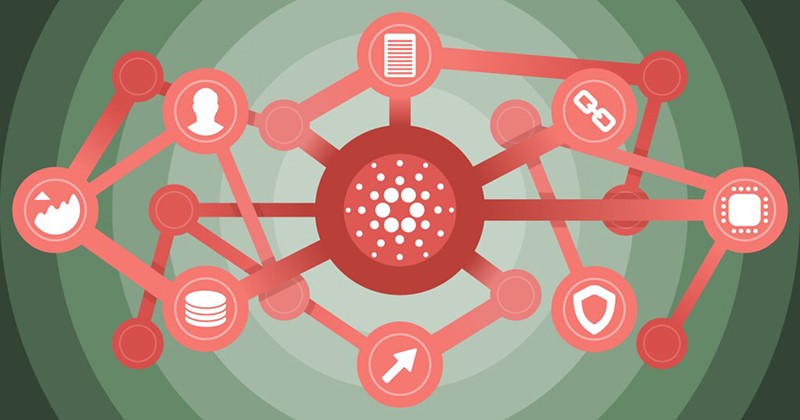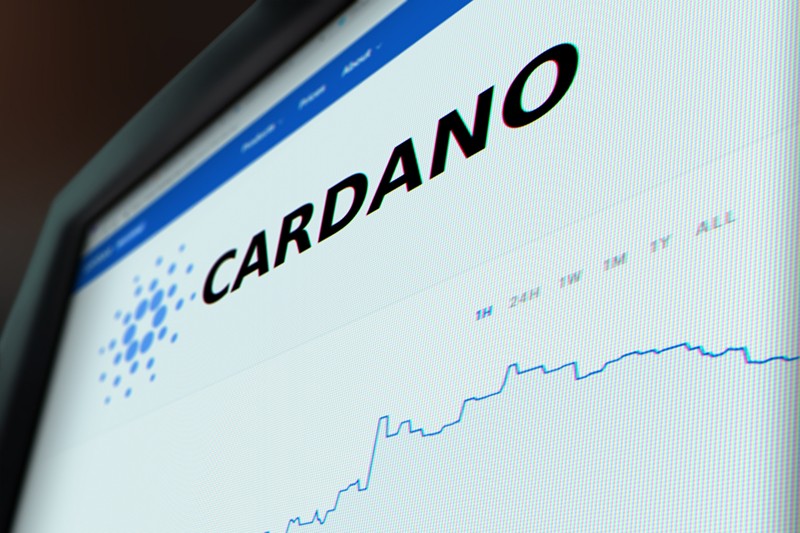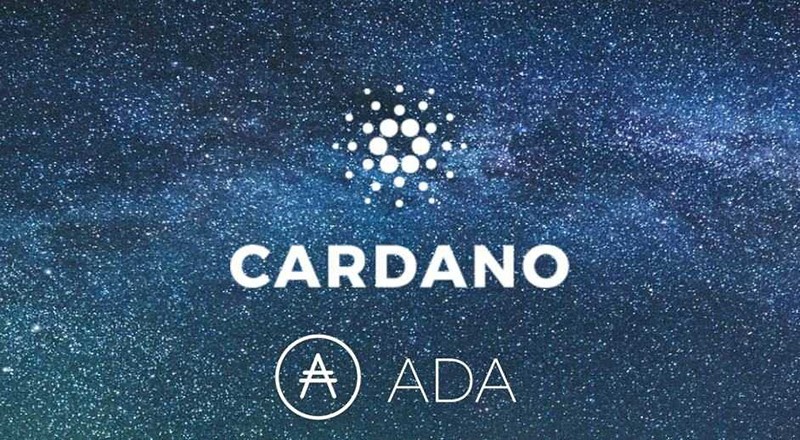Cardano is a third-generation blockchain platform that aims to provide a more secure and scalable infrastructure for the development of decentralized applications and smart contracts. The ADA coin is the native cryptocurrency of the Cardano network, used for various transactions and services within the ecosystem.
Key Features of ADA:
- Proof-of-Stake (PoS) consensus mechanism for improved scalability and energy efficiency
- Multi-layer protocol for separating settlement and computation layers
- Formal verification methods for enhanced security and reliability
- Continuous development and research by a team of experts and scientists
Overall, ADA is positioned as a promising digital asset with a strong focus on sustainability, interoperability, and scalability in the rapidly evolving blockchain space.
Cardano: A Comprehensive Analysis
Cardano, often referred to as ADA, was launched in September 2017 by Input Output Hong Kong (IOHK), a blockchain research and development company. The project was founded by Charles Hoskinson, one of the co-founders of Ethereum, and aims to create a more secure and scalable blockchain platform.
Features of Cardano Technology
Cardano is known for its innovative technology and unique approach to blockchain development. Here are some key features of the Cardano network:
- Proof of Stake Algorithm: Cardano uses a proof-of-stake consensus algorithm called Ouroboros, which is designed to be more energy-efficient and secure than traditional proof-of-work systems.
- Layered Architecture: The Cardano platform is built on a layered architecture that separates the settlement layer from the computation layer, allowing for greater flexibility and scalability.
- Smart Contracts: Cardano supports smart contracts, allowing developers to build decentralized applications (dApps) on the platform using its native programming language, Plutus.
- Sustainability and Governance: Cardano has a unique governance model that allows ADA holders to participate in decision-making processes through a voting system. This helps ensure the long-term sustainability and growth of the network.
Overall, Cardano is considered one of the most promising blockchain projects in the industry, with a strong focus on security, scalability, and sustainability. Its innovative technology and commitment to research make it a popular choice among investors and developers alike.

Cardano (ADA) Analysis: Scalability, Security, Decentralization
Advantages:
- Scalability: Cardano’s unique approach to scalability through its layered architecture allows for increased transaction throughput without compromising security. This makes it a promising option for handling a high volume of transactions in the future.
- Security: Cardano’s use of a proof-of-stake consensus mechanism, known as Ouroboros, ensures a high level of security on the network. This makes it less susceptible to attacks compared to proof-of-work systems.
- Decentralization: Cardano is committed to achieving a high level of decentralization by allowing users to participate in the governance of the network through staking and voting. This helps prevent centralization of power within the network.
Disadvantages:
- Scalability: While Cardano’s layered architecture is designed to improve scalability, it is still in the early stages of development. This means that it may face challenges in scaling effectively as the network grows.
- Security: Although Cardano’s proof-of-stake mechanism is considered secure, it is not immune to potential vulnerabilities or attacks. Continued monitoring and updates are necessary to ensure the network remains secure.
- Decentralization: While Cardano aims for a high level of decentralization, there are concerns about the concentration of ADA tokens among a small number of stakeholders. This could potentially impact the overall decentralization of the network.
Overall, Cardano shows promise in terms of scalability, security, and decentralization, but it also faces challenges that need to be addressed as it continues to evolve.
The Role of ADA Token in the Cardano Ecosystem
ADA is the native cryptocurrency of the Cardano blockchain, which aims to provide a secure and scalable platform for the development of decentralized applications and smart contracts. ADA plays a crucial role in the Cardano ecosystem, serving various functions such as governance, staking, and transactions.
Governance
ADA holders have the ability to participate in the governance of the Cardano network by voting on proposals and making decisions that impact the future development of the platform. This gives ADA holders a voice in shaping the direction of the ecosystem.
Staking
ADA can be staked to help secure the Cardano network and earn rewards in the form of additional ADA tokens. Staking is a crucial mechanism for maintaining the security and decentralization of the blockchain, as well as incentivizing holders to actively participate in the network.
Total Number of ADA Tokens
The total supply of ADA tokens is capped at 45 billion, with a significant portion already in circulation. This finite supply helps to ensure scarcity and value appreciation over time, as demand for ADA grows within the ecosystem.
Where to Buy ADA Token
ADA tokens can be purchased on various cryptocurrency exchanges such as Binance, Coinbase, Kraken, and Bittrex. It is important to choose a reputable exchange with high liquidity and security measures in place to protect your investment.
Exploring the Development Prospects of the Cardano Ecosystem
Cardano, often referred to as the “Ethereum killer,” has been gaining significant traction in the cryptocurrency space. With its unique approach to blockchain technology and a strong focus on scalability, interoperability, and sustainability, Cardano has the potential to revolutionize the way we think about cryptocurrencies.

Increasing Usage and Adoption
As more users and developers flock to the Cardano ecosystem, we can expect to see a surge in usage and adoption. The platform’s robust infrastructure and commitment to decentralization make it an attractive option for those looking to build decentralized applications (dApps) and smart contracts.
Technical Advancements
Cardano’s development team is constantly working on improving the platform’s functionality and security. With the upcoming implementation of smart contracts through the Alonzo upgrade, Cardano is poised to compete with other major players in the space, such as Ethereum and Binance Smart Chain.
Partnerships and Collaborations
Cardano has been forging strategic partnerships with various organizations and governments around the world. These collaborations will not only help increase the platform’s visibility but also drive adoption and usage among a wider audience.
Conclusion
Overall, the future looks bright for the Cardano ecosystem. With its innovative technology, growing community, and strong development team, Cardano is well-positioned to become a major player in the cryptocurrency space. As usage continues to increase, we can expect to see even greater advancements and opportunities for growth within the ecosystem.
Cardano: A Closer Look
Cardano is a blockchain platform that aims to provide a more secure and scalable infrastructure for the development of decentralized applications and smart contracts. With a strong focus on academic research and peer-reviewed technology, Cardano has garnered attention in the crypto community.
Technology
Cardano’s technology is built on a layered architecture, separating the settlement layer from the computation layer. This approach allows for greater flexibility and scalability, making it a promising platform for future development.
Potential
Cardano has the potential to become a major player in the blockchain space, especially with its emphasis on security and scalability. Its partnerships with academic institutions and commitment to peer-reviewed research set it apart from other projects.
Investment Advisability
As with any investment, it’s important to do your own research and consider your risk tolerance before investing in ADA. While Cardano shows promise, the cryptocurrency market is volatile, and there are no guarantees of returns. It may be wise to diversify your portfolio and only invest what you can afford to lose.


I agree with the author’s assessment of Cardano’s potential as a major player in the crypto space due to its focus on scalability, security, and sustainability. The author’s comprehensive analysis of Cardano’s features, such as its unique proof-of-stake consensus mechanism and layered architecture, provides a clear understanding of its advantages. However, I disagree with the author’s assertion that Cardano is an “Ethereum killer”. While Cardano has innovative features, Ethereum has a more established ecosystem and widespread adoption. Furthermore, the author could have expanded on the risks associated with investing in ADA, such as regulatory risks and market fluctuation.
The author has done an excellent job of detailing the opportunities and risks associated with investing in ADA. I agree with the assessment of Cardano’s potential, given its unique approach to scalability and security. However, I’m not entirely convinced about the concerns regarding the concentration of ADA tokens among a few stakeholders. This is a common occurrence in many cryptocurrencies and doesn’t necessarily impact the overall decentralization. Nonetheless, the advice on conducting personal research before investing is sound and should always be heeded.